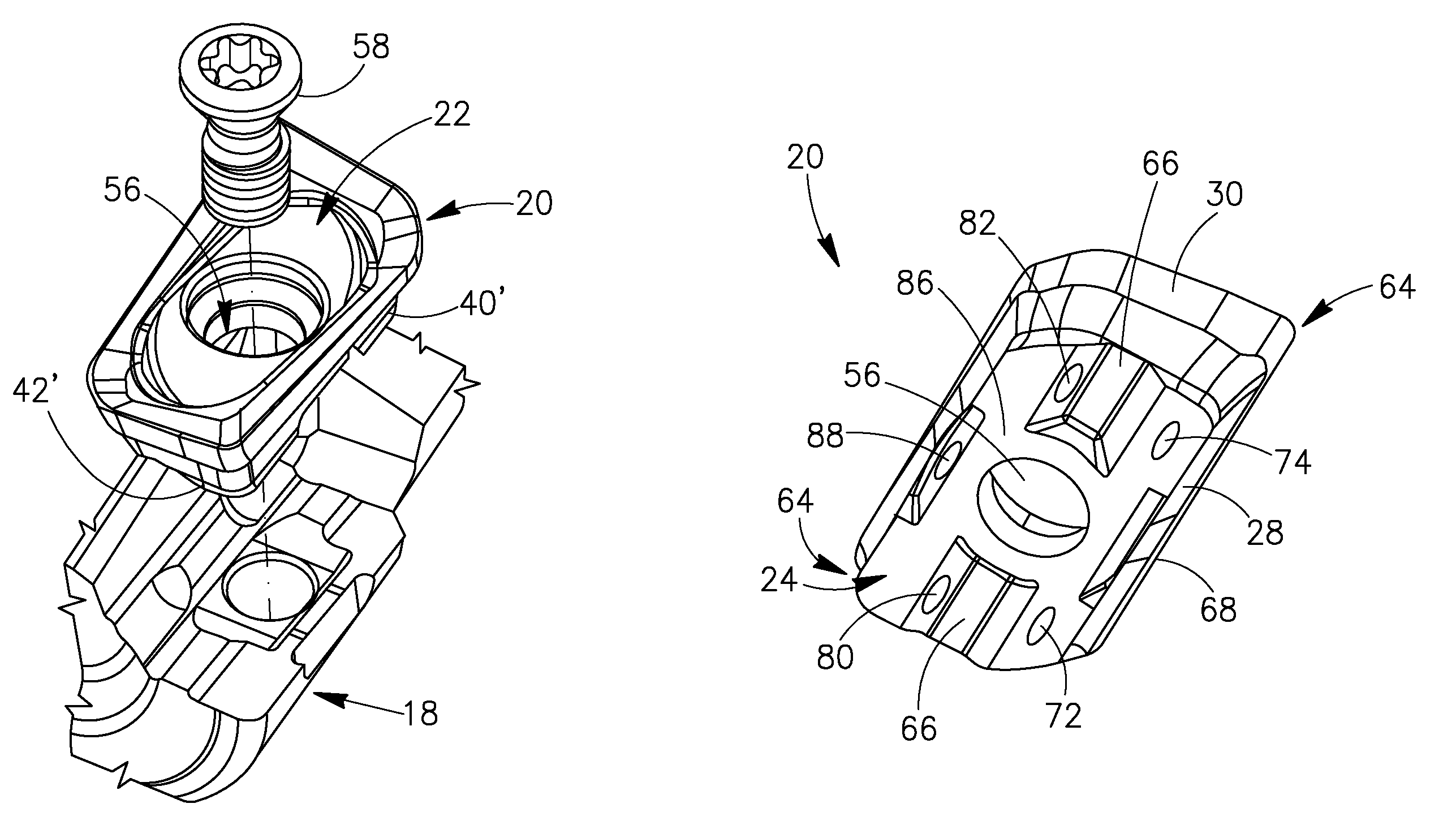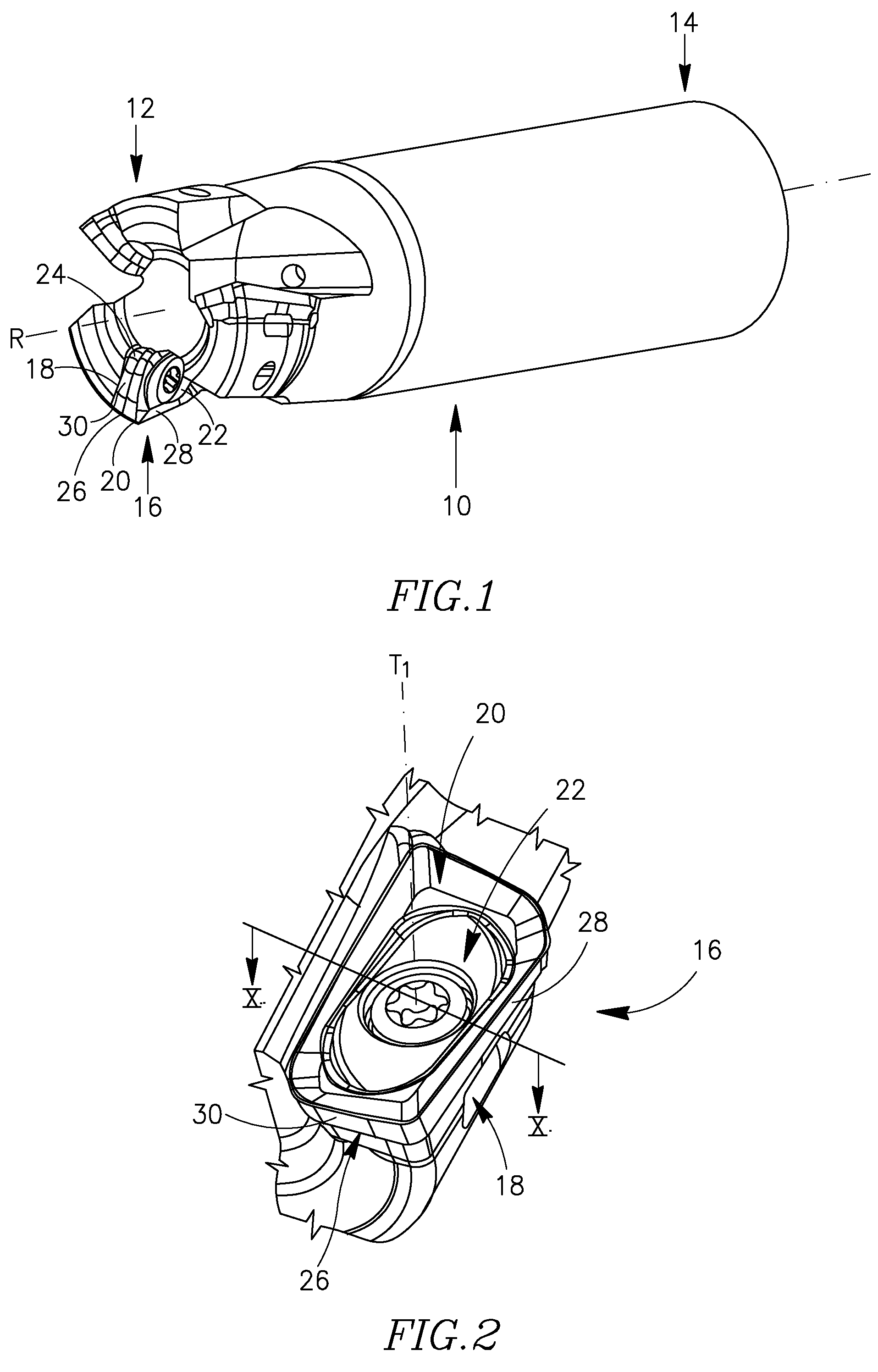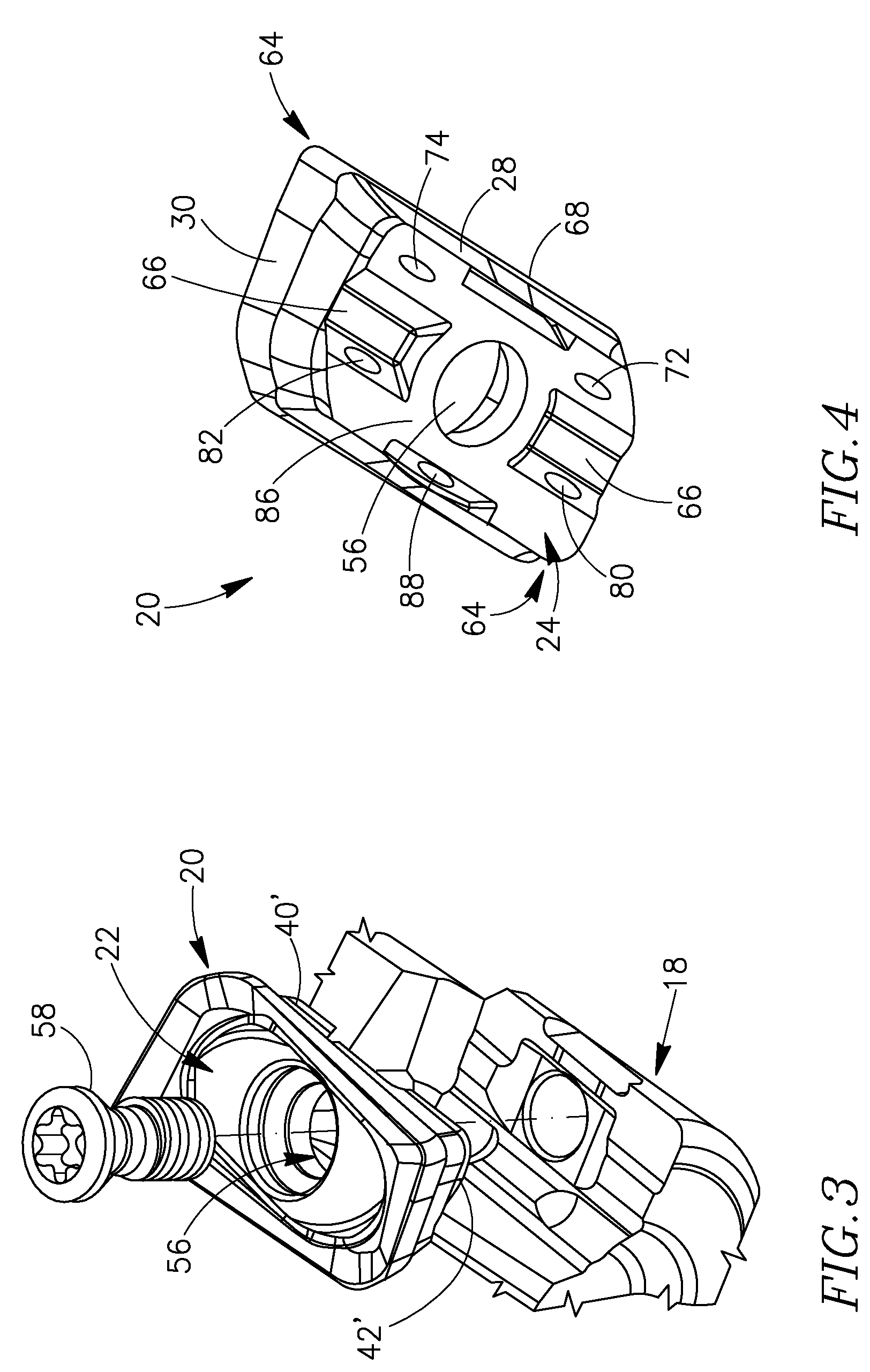Cutting tool and cutting insert therefor
a cutting tool and insert technology, applied in the field of cutting tools and cutting inserts therefor, can solve the problems of limited performance of cutting tools, risk of deformation and eventually breaking of clamping screws, and large force on the clamping screw, and achieve the effect of high resistance to exertion
- Summary
- Abstract
- Description
- Claims
- Application Information
AI Technical Summary
Benefits of technology
Problems solved by technology
Method used
Image
Examples
Embodiment Construction
[0030]In the following description, various aspects of the present invention will be described. For purposes of explanation, specific configurations and details are set forth in order to provide a thorough understanding of the present invention. However, it will also be apparent to one skilled in the art that the present invention may be practiced without the specific details presented herein. Furthermore, well-known features may be omitted or simplified in order not to obscure the present invention.
[0031]Although some drawings herein show, and / or some descriptions herein refer to a rotating cutting tool such as a milling tool, the present invention is not limited in this respect. For example, some embodiments of the invention may refer to a plurality of other cutting tools e.g., to various other rotating tools such as drilling tools, reaming tools or the like, or to turning tools, or to any other metal cutting tool that include one or more releasably retained cutting inserts.
[0032]...
PUM
| Property | Measurement | Unit |
|---|---|---|
| obtuse angle | aaaaa | aaaaa |
| obtuse angle | aaaaa | aaaaa |
| acute angle | aaaaa | aaaaa |
Abstract
Description
Claims
Application Information
 Login to View More
Login to View More - R&D
- Intellectual Property
- Life Sciences
- Materials
- Tech Scout
- Unparalleled Data Quality
- Higher Quality Content
- 60% Fewer Hallucinations
Browse by: Latest US Patents, China's latest patents, Technical Efficacy Thesaurus, Application Domain, Technology Topic, Popular Technical Reports.
© 2025 PatSnap. All rights reserved.Legal|Privacy policy|Modern Slavery Act Transparency Statement|Sitemap|About US| Contact US: help@patsnap.com



